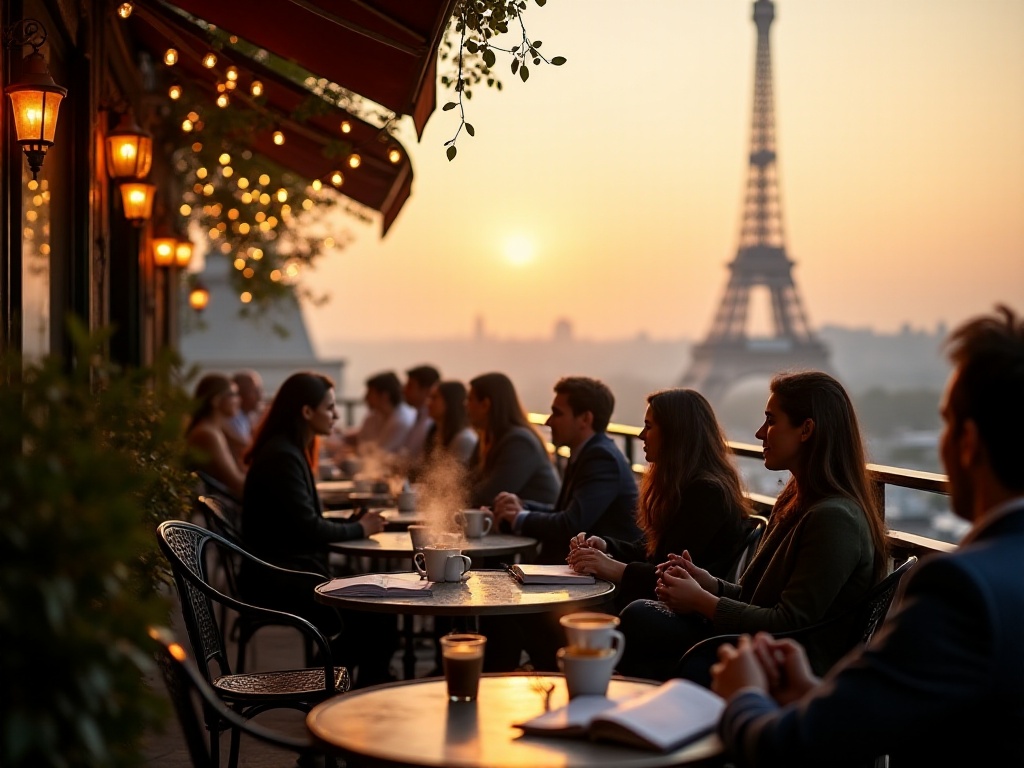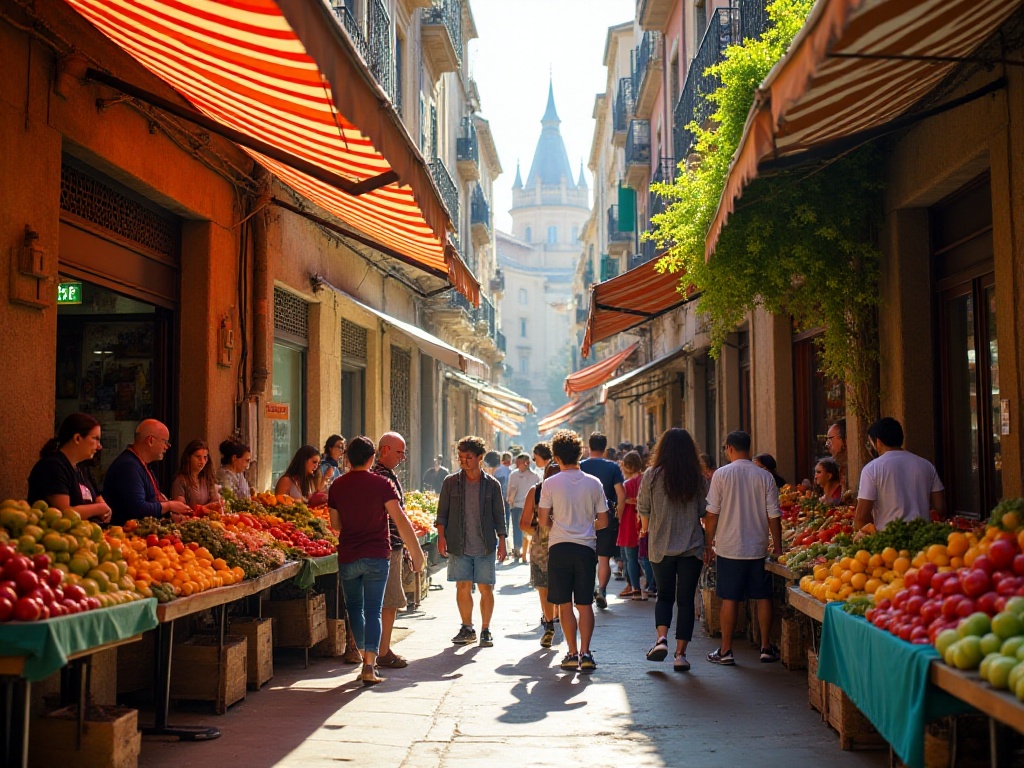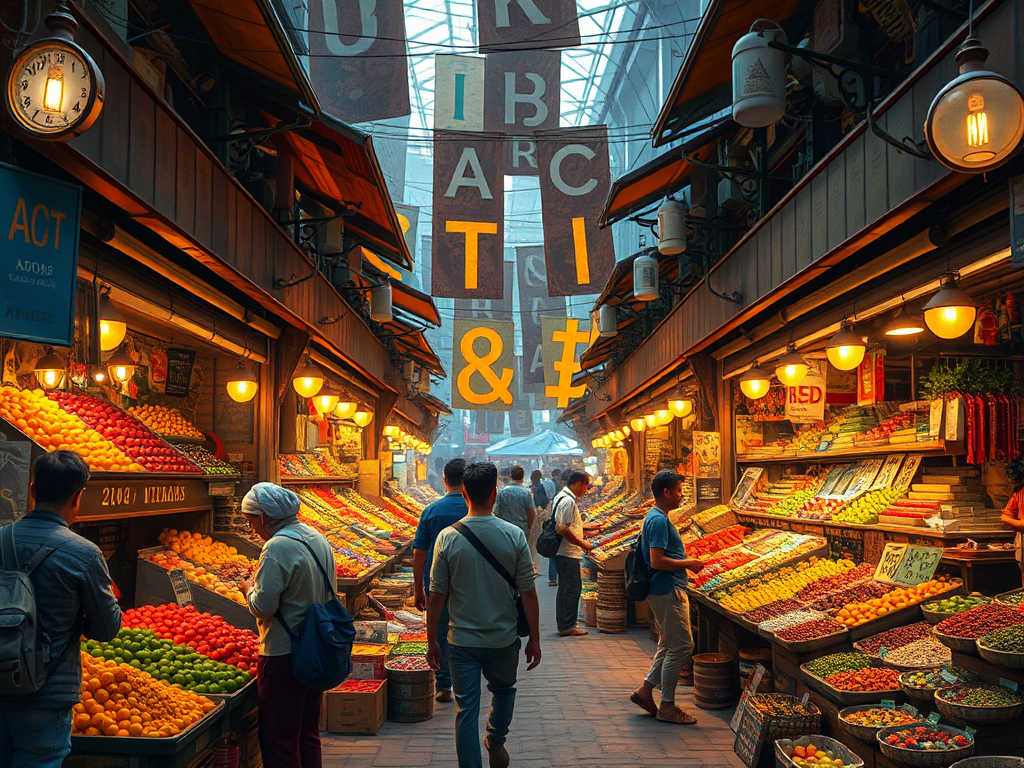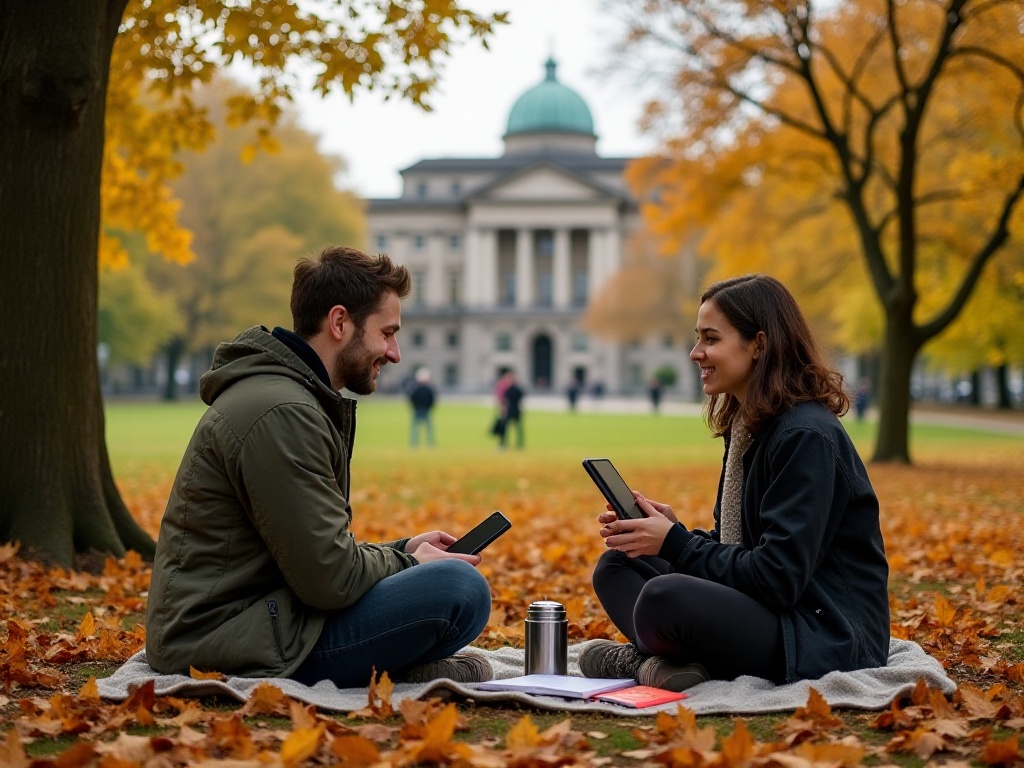
Introduction
When I first set foot alone in Paris, I felt like a helpless mouse wandering through the complex metro stations. The huge metro map was like hieroglyphics to me, with its dense, interweaving colored lines making me dizzy. Standing at the ticket machine, I had no idea which button to press, let alone understand the differences between various tickets.
Finally, I mustered the courage to ask passersby for help with my terribly broken French. "Pardon, où est la Tour Eiffel?" I remember my voice trembling as I spoke, afraid of being scorned for my imperfect pronunciation. To my surprise, the stranger not only didn't look down on me but patiently gave me directions using gestures and simple English words. This experience made me deeply realize: if you want to truly experience a city, you must first overcome the language barrier.
The Magic of Language
Mastering a foreign language is like gaining a magical key that opens many unexpected doors. I'll never forget that small café in the 6th arrondissement of Paris, with a shop front smaller than my living room but filled with irresistible aromas. Because I could speak some French, I not only successfully ordered the owner's secret dessert but also gained an unforgettable conversation.
The owner, who had a small mustache, always had a smile in his eyes. When I stammered in French to compliment his desserts, his whole face lit up. For the next hour, he enthusiastically told me about French afternoon tea culture. It turns out that for the French, afternoon tea is never just about filling the stomach, but rather an art of living.
The owner showed me some interesting data: A 2023 survey showed that Parisians spend an average of 3.5 times per week in cafés. While tourists who don't speak French usually only order basic espresso, missing out on traditional delicacies like "tarte Tatin" (French apple tart). He expressed regret when saying this, as if feeling sorry for those tourists who missed out on these culinary delights.
Through this conversation, I truly understood that language isn't just a combination of words and grammar rules; it's more like a bridge that directly connects you to local lifestyles and ways of thinking. Every new word learned adds another dimension to understanding the city.

Deep Experience
My experience in Paris completely changed my perception of travel. I used to think that visiting a place meant taking some popular photos and buying some luxury bags. But now I realize that such superficial tourism can't touch the soul of a city.
An interesting survey from early 2024 showed that over 75% of young Chinese travelers say they prefer spending time and energy deeply experiencing local culture rather than superficial sightseeing. This data particularly pleased me, showing that more young people are pursuing quality travel experiences.
Last winter, I made a bold decision: I joined a one-month French language study program. Instead of staying in a hotel, I chose a homestay family. This decision made my French improve dramatically because I was completely immersed in a French environment where survival without speaking French was impossible.
Every morning, I would prepare breakfast with my French host mother. At first, I was all thumbs, unable to even name basic kitchen utensils. But gradually, through repeated daily conversations, I not only learned various kitchen terminology but also mastered authentic French breakfast preparation. In the evenings, watching French cartoons with their children, the simple dialogues and vivid images made language learning fun and easy.
This immersive learning experience was much more effective than sitting in a classroom memorizing. Because you're not passively receiving knowledge, but actively using the language in real-life situations. Each successful communication gives you a great sense of achievement, and this positive feedback motivates you to learn more.

Learning Tips
To quickly improve language skills while traveling, having the right methods is key. Through my own exploration and summary, I've discovered several particularly effective techniques.
First, preparation work is essential. In the month before departure, I spent an hour every day practicing basic conversations using language learning apps. It might seem boring at first, but when you find these basic dialogues useful in actual scenarios, you'll feel a great sense of achievement. According to language learning experts, mastering 300 most commonly used words and 50 basic sentence patterns can handle 80% of daily communication scenarios. This number doesn't seem large, but the key is to precisely target the most practical content.
Second, make good use of various resources around you. For example, I particularly like going to local markets instead of supermarkets. During the bargaining process at markets, numbers and adjectives are frequently used. At first, I stumbled even with basic numbers, but after repeated practice, I can now fluently discuss prices with vendors. A recent study showed that this contextual learning method can increase vocabulary retention by about 40%, which completely confirms my personal experience.
Additionally, I enjoy participating in local social activities. For example, the Thursday evening language exchange activities where people from different countries gather to teach each other simple daily expressions in their native languages. In this relaxed atmosphere, you can not only learn authentic expressions but also make friends from around the world.
I've also found that using multimedia resources is a good way to improve language skills. Every night before bed, I watch an episode of French drama with French subtitles or listen to French podcasts. Through these entertaining contents, you can naturally exposure yourself to local lifestyles and ways of thinking. Especially slang and colloquialisms, which are difficult to learn in formal language courses but frequently appear in media.

Program Selection
If you want to systematically improve your language skills, choosing a quality language study program is crucial. 2023 data shows that students studying at professional language training institutions can improve their language level by 1.5 grades on average within 3 months. This progress rate is much faster than pure self-study.
However, language training programs in the market vary in quality, and several key points should be noted when choosing. First, check if the course arrangement is scientifically reasonable. According to brain science research, human attention span is limited, and daily study time should be controlled between 4-6 hours. Beyond this time, learning efficiency drops significantly.
Second, pay attention to the richness of cultural activities. Quality language programs usually arrange 3-4 cultural experience activities per week, such as museum visits, cooking classes, and movie appreciation. These activities not only help students use the language they've learned in real scenarios but also deepen their understanding of local culture.
Accommodation conditions are also a very important consideration. I particularly recommend choosing homestay families, but the prerequisite is to confirm whether the institution has strict screening standards for homestay families. A good homestay family can provide the most natural environment for language learning, but if the family conditions are not ideal, it can affect learning outcomes. It's recommended to carefully review previous students' evaluations, especially feedback about homestay families.
Furthermore, pay attention to the practicality of the course. Some institutions overly emphasize grammar training while neglecting oral communication skills. Ideal course settings should balance theory and practice, allowing students to both master correct language rules and flexibly use them in actual communication.
Price is also a factor to consider, but shouldn't be the only standard. You get what you pay for, and overly cheap programs often lack in teaching quality or service. It's recommended to choose the most cost-effective program within your budget.

New Reflections
Through these travel and language learning experiences, I've gained a new understanding of cross-cultural communication. Language learning is not simply mastering a communication tool; it's more like opening a new window to understand the world. When you communicate with people in their native language, you often discover completely different ways of thinking and attitudes toward life.
Take the simplest greeting for example, the French "Comment allez-vous?" (How are you?) seems like just a common greeting, but it contains uniquely French social etiquette and warmth. If you can respond fluently in French and appropriately expand the topic, you often receive unexpected surprises. I've frequently made interesting local friends just from a simple greeting.
Language learning has also given me new insights into my mother tongue. When you try to express your thoughts in another language, you often discover that each language has its unique way of expression and thinking logic. These differences aren't obstacles but manifestations of cultural diversity. Through learning different languages, we can understand this world with a more open and inclusive mindset.
On the streets of Paris, I often hear languages from around the world. Each language is like a unique melody, telling different stories. And through learning French, I gained the ability to listen to and understand these stories. This ability has made my travels more colorful and given me a deeper understanding of life.
This is the charm of language - it not only takes you into a new world but also changes how you see the world. If you're also interested in language travel, try taking the first step. I believe you'll also, like me, gain plenty of surprises and touching moments in this process.
Do you have similar experiences? Or any plans for language travel? Welcome to share your story in the comments.
Next
Learning Languages in Foreign Lands: An Immersive Experience Shared by a Travel Blogger
Explore the dynamic relationship between travel and language learning, examining how immersion enhances language skills and how linguistic abilities deepen travel experiences through cultural engagement and authentic interactions
One Person's Language Journey: Measuring the World with Footsteps, Making Travel the Best Language Classroom
Explore effective methods and benefits of learning languages through travel, combining immersive strategies with practical approaches, supported by digital tools and structured resources for enhanced language acquisition and personal growth
One Person's Language Learning Journey: My 90-Day Immersion Experience in a Rural Japanese Town
Explore how travel facilitates language learning through immersive environments, covering natural and structured learning methods, along with guidance on choosing suitable language programs and courses to enhance language skills while traveling
Next

Learning Languages in Foreign Lands: An Immersive Experience Shared by a Travel Blogger
Explore the dynamic relationship between travel and language learning, examining how immersion enhances language skills and how linguistic abilities deepen travel experiences through cultural engagement and authentic interactions

One Person's Language Journey: Measuring the World with Footsteps, Making Travel the Best Language Classroom
Explore effective methods and benefits of learning languages through travel, combining immersive strategies with practical approaches, supported by digital tools and structured resources for enhanced language acquisition and personal growth

One Person's Language Learning Journey: My 90-Day Immersion Experience in a Rural Japanese Town
Explore how travel facilitates language learning through immersive environments, covering natural and structured learning methods, along with guidance on choosing suitable language programs and courses to enhance language skills while traveling



